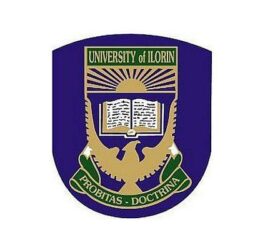
Prof. Kadiri, who disclosed this in an interview with UNILORIN Bulletin in his office, last Monday (September 9, 2024), explained that the National Universities Commission (NUC) would soon be visiting the institution to accredit its Master’s degree programmes in Business Administration (MBA), Public Administration (MPA) and Industrial and Labour Relations (MILR).
The Director, who is a renowned Professor of Industrial Relations and Personnel Management, said that the development would mark a significant step forward for the Business School as it seeks to enhance its academic offerings and maintain high standards.
He also revealed that the University Senate has approved significant policy changes that would allow the IBS to collate and release results directly to its students.
The Director said that the development is expected to streamline administrative processes and reduce bureaucratic delays that have previously hindered timely release of results.
Prof. Kadiri commended the Vice Chancellor, Prof. Wahab Olasupo Egbewole SAN, and members of the University management for their support for the IBS.
He praised the University management for recognising the increasing potentials of the IBS and taking decisive steps to position it at the forefront of business education in the country.
Reflecting on the school’s journey so far, Prof. Kadiri noted that the relocation of IBS from the permanent site to the mini-campus has been a game-changer for the University. He explained that the previous location had posed challenges due to its distance from the town, saying that this has considerably limited the school’s competitiveness in the market.
He explained that the relocation has brought the school closer to the people and significantly boosted its accessibility and appeal.
Prof. Kadiri said that the relocation of the School was also intended to reposition it to enable it assume its leadership role in professional programme studies not just in Kwara State but across Nigeria.
The Director, who is a Fellow of the Institute of Operation Research of Nigeria, said one of the most notable advancements at the School is the implementation of a robust Learning Management System (LMS). He explained that “this system has revolutionised the delivery of education at the school, with 70% of lectures now conducted online, 20% through physical classes, and the remaining 10% dedicated to examinations”.
He explained that this blended learning approach is designed to enhance flexibility and accessibility for students, as well as position the school as a leader in innovative educational practices.
The Director added that as the school continues to evolve, these strategic initiatives are expected to solidify its standing as a premier institution for business education that attracts students and professionals from across the country and beyond.
“With the forthcoming NUC accreditation and the introduction of innovative educational practices, the Ilorin Business School is poised for a new era of growth and excellence”, Prof. Kadiri explained.
The Director said that the school is actively seeking to strengthen its relationship with the industrial sector by integrating more industry professionals into its Board of Directors.
He said that such collaborations are expected to enhance the quality of education and research at the School, making its graduates more competitive in the job market. The involvement of industry experts in decision-making processes will also provide students with insights into real-world business challenges, and better prepare them for their future careers.